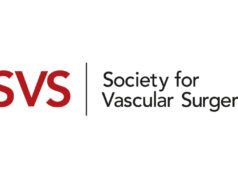 Today’s program at the 2023 Vascular Annual Meeting (VAM) will feature the presentation of an abstract by R. Debbie Li, MD, Loyola University Medical Center, Chicago, on the divergent perceived experiences of the shared learning environment by vascular and general surgery residents.
Today’s program at the 2023 Vascular Annual Meeting (VAM) will feature the presentation of an abstract by R. Debbie Li, MD, Loyola University Medical Center, Chicago, on the divergent perceived experiences of the shared learning environment by vascular and general surgery residents.
The research, led by Dawn M. Coleman, MD, Duke University Medical Center, Durham, North Carolina, and Malachi Sheahan III, MD, on behalf of the Vascular Arm of the SECOND Trial was carried out in the belief that “an enriching learning environment is integral to resident wellness” per the abstract. The study team aimed to identify differences in the experience of vascular and general surgery residents with a view to finding “practical levers for change” in improving resident wellness and addressing rates of attrition.
Li and colleagues conducted a convergent mixed-methods study which included the use of cross-sectional surveys following the 2020 ABS In-Training Examination (ABSITE) and Vascular In-Training Examination (VSITE). This survey looked at eight domains of the learning environment and resident wellness, while multivariable logistic regression models were used to compare thoughts of attrition between postgraduate year (PGY) 1–3 residents in general and vascular surgery across 57 institutions. Focus groups were also conducted at last year’s VAM.
In total, 205 vascular residents and 1,198 general surgical residents responded, with general residents found to be more likely to experience mistreatment and consider leaving their program. Coleman, Li and colleagues highlight the qualitative data they collected, stating: “Vascular trainees expressed that early specialization and a smaller, more invested faculty allows for an apprenticeship model” that facilitates “frequent feedback, and thus early skill acquisition” as well as “closer relationships with co-residents and faculty.” This relationship in turn allowed vascular trainees to be more comfortable in reporting mistreatment.
These differences, the study authors suggest, may be the result of “intrinsic features of the integrated training paradigm that are not easily replicated” by larger surgical training programs. Li et al say they are “thrilled” with these results, and propose in conclusion that “optimization of differential aspects of the learning environment is crucial to continue to enhance the next generation of our surgical workforce.”











